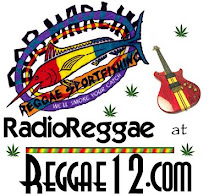MARK LELINWALLA
Associated Press
NEW YORK - Being an icon's son isn't easy. Yet Damian Marley is doing just fine. The son of Bob is leading reggae back to its roots with his enthralling summer anthem, "Welcome To Jamrock," and new album.
The articulate, socially conscious artist known as "Jr. Gong" spoke to The Associated Press about the return of traditional reggae, gang violence, working with Alicia Keys and continuing his father's legacy.
AP: Since the "Welcome To Jamrock" single is so big, what do you expect from the album?
Marley: It can expose people to what we're speaking about and what the music stands for in a moral and lyrical sense. It's about what's going on in the world, not just my life.
AP: There has been a real return to traditional grassroots reggae. How do you feel about that?
Marley: In Jamaica, it was never dormant, but what you see right now is a lot of roots music becoming a national representation of the music once again, as opposed to the last few years when it was dancehall and club stuff.
AP: What's your opinion on reggaeton?
Marley: To tell you the truth, I'm not so up on it to say. I'm not real familiar with it because first of all I don't understand what a lot of it is saying because I don't speak Spanish. I can tell you that the best form of flattery is imitation, in terms of other people using our culture - dancehall and reggae culture and music. That's flattery.
AP: What do you think about Sean Paul, Elephant Man and Shaggy, reggae dancehall artists who have hit mainstream success here in the United States?
Marley: Good for them. I don't have a problem with any of them.
AP: Do you like their music?
Marley: There are some songs I don't care for and some songs I like. There's definitely another side of (reggae) music that those artists don't represent. Those songs aren't full representation of reggae music. They're not the full ambassadors of reggae music. They're not the FULL representation.
AP: Gang violence has been a problem in Jamaica. What's the state of it right now?
Marley: Poverty breeds a lot of things. When people are desperate and trying to survive, they do drastic things. That's what a lot of people feel like in Jamaica. That's what we're trying to say in our music, that's there's not that much being done about it. Sending a whole swarm of police into our area to shoot up the place is not going to make anything better. It's going to create more enemies.
AP: If you were in charge, what would you do?
Marley: There is a lot of ways, but I'm not in charge. There are people in charge and I want them to do their job. I'm not a politician, I'm a musician. The gang violence you see in Jamaica was something seeded from politics. So, first politicians need to stop the violence because it has become a way of life in Jamaica. It's the thing to do - be violent in Jamaica.
AP: There have been protests against reggae artists that use homophobic lyrics. What's your take on that?
Marley: We can find better things to talk about right now than people's lyrics and that's all I have to say about that.
AP: How was it working with Alicia Keys for her MTV Unplugged special?
Marley: I'm a fan of her music. What I really appreciate about her music is the whole live aspect. She's very hands-on and musical. Reggae musicians appreciate that because we use more live instrumentation.
AP: How was it working with Nas and The Roots?
Marley: It was a big honor. We all stand for the same things in our music and we speak on things that are positive. What I love about their music is it's positive, but it's about life in dark places. They're making music for the hungry. They try to feed people that are hungry, rather than feed people who are fed.
AP: How much of an influence do your brothers have on your albums?
Marley: Well, first of all my big brother Steve is my producer. I'm actually very active as a producer for this album also, so we basically produced it together. We work as a team.
AP: How are things between Lauryn Hill and her husband, your brother Rohan?
marley: That's none of my business.
AP: To set the record straight, how many children did your father have?
Marley: A lot. A lot.
AP: When you record, do you and your brothers feel like you're continuing your father's legacy?
Marley: Yea, but more so because the work that we're doing is Rasta work. His music was not pop music. It was struggle music and uplifting from that struggle.


